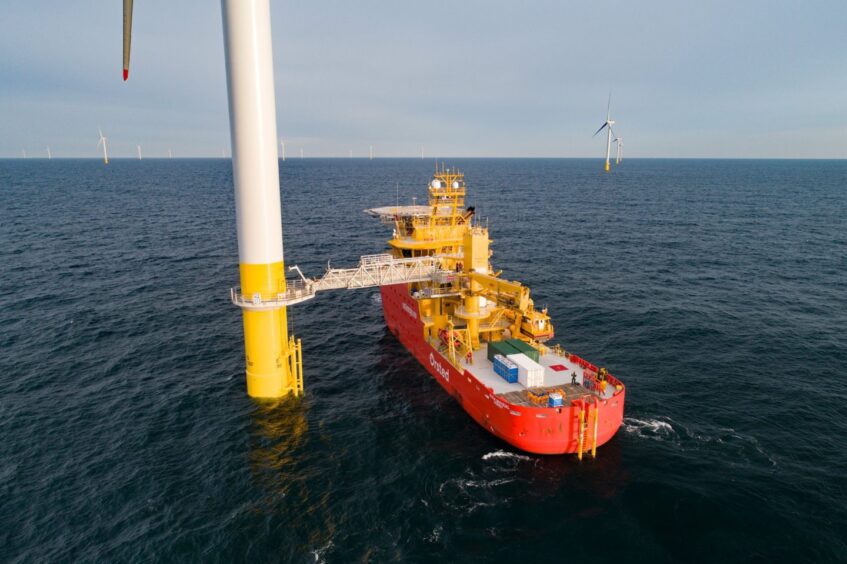
The Health and Safety Executive (HSE) has issued a warning over the safety of gangways used to connect service vessels to offshore wind turbines.
The HSE said the notice regarding the motion compensated gangways (MCGs) follows recent incidents in UK waters which caused “serious injury”.
The safety regulator issued a similar alert last week after a wind turbine technician was injured by a service lift.
While MCGs have been used in the oil and gas industry for years, the HSE said the rapid growth of the wind energy sector has led to a surge in MCG use and a wider range of manufacturers and suppliers.
This growth has also seen more vessel owners and operators installing them for offshore access, the HSE said.
Offshore wind gangways
The HSE said the MCGs pose a risk of entrapment and shearing, and falls from height, and issued guidance to windfarm and service vessel operators on ways to mitigate risk.
This includes conducting a risk assessment, including the risk of workers falling or stumbling as a result of sudden movements of the system or vessel.
The HSE said if the risks from entrapment or fall from height are still present on any MCG in use or being considered for use then further risk reduction measure will be required.
“If additional risk reduction measures require modifications or alterations to the gangway system then appropriate collaboration will be required between the operator or duty holder ,vessel owner or operator, and the system manufacturer,” the HSE said.
The HSE also said operators should ensure that any gangway auto-retraction function provides suitable audible and visible warnings which “allow users sufficient time to make themselves safe before the auto-retraction function activates”.
Windfarm operators should also provide workers with adequate training, and ensure MCG owners or operators have an appropriate inspection and maintenance regime in place.
Offshore wind safety
The HSE alerts come amid union concerns about the safety of workers in the rapidly growing offshore wind sector.
Offshore wind health and safety organisation G+ recorded 350 safety incidents in the UK in 2022, down slightly on the previous year but significantly above the next highest country Taiwan.
Last year, the HSE revealed it has just four inspectors dedicated to offshore wind, compared to around 120 for offshore oil and gas.
At the time, the RMT said the number of inspectors assigned to cover offshore wind was “clear evidence” of the need for better regulation in offshore renewables.
The RMT union first raised concerns about a “regulatory void” in the industry following the death of a worker on a floating offshore drilling rig in the North Sea.
Recommended for you

 © Supplied by Canva Stock
© Supplied by Canva Stock